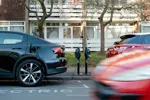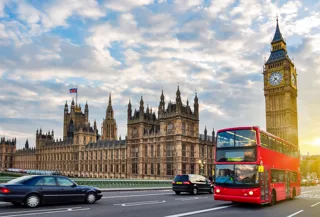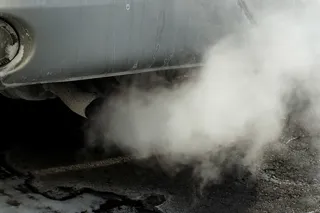The Mayor of London, Sadiq Khan, has confirmed that his £10 emissions surcharge (T-charge) will start in central London on October 23, 2017.
Up to 10,000 of the oldest, most polluting vehicles are expected every weekday to be potentially liable for the new emissions levy, which will apply to motorists who own vehicles that do not meet Euro 4 standards – typically those diesel and petrol vehicles registered before 2006.
The Mayor has launched a free online tool on the Transport for London website to allow motorists to check whether their vehicle will be affected by the T-charge and get advice on what action, if any, they need to take.
The T-charge will operate on top of, and during, the same operating times as the congestion charge (Monday to Friday 7am-6pm), so it will cost £21.50 to drive a pre-Euro 4 vehicle in the zone.
The Mayor said that Londoners "overwhelmingly" supported his plans "because they feel when it comes to battling pollution the time for action is now". Currently more than 9,000 Londoners die prematurely each year as a result of long-term exposure to air pollution – while 438 schools in the capital are in areas exceeding legal air quality levels.
The Mayor said: “It’s staggering that we live in a city where the air is so toxic that many of our children are growing up with lung problems. If we don’t make drastic changes now we won’t be protecting the health of our families in the future.
He added: “The T-charge is a vital step in tackling the dirtiest diesels before I introduce the world’s first Ultra Low Emission Zone as early as 2019.
“I will continue to do everything in my power to help protect the health of Londoners and clean our filthy air. But now is the time for Government to show real leadership and join me by introducing a diesel scrappage fund and bring in the new Clean Air Act we desperately need.”
Leon Daniels, TfL’s managing director of surface transport, said: “London’s air quality crisis is one of the biggest challenges we face and we are working alongside the Mayor to address it. The T-charge is a crucial part of this work and will discourage drivers of the oldest, most polluting vehicles from driving in central London."
The T-charge will use a camera-based mechanism for enforcement, monitoring both diesel and petrol vehicles, and is just one of a number of measures the Mayor is introducing to improve air quality.
The Mayor has doubled funding spent on tackling air quality to £875 million (over the next five years) and will be consulting on introducing the start of the central London ULEZ in 2019, expanding the ULEZ up to the North/South Circular roads and making it London-wide for heavy vehicles as early as 2019.
He is also spending more than £300m phasing out pure double-deck diesel buses and has committed to purchase only hybrid or zero-emission double-decker buses from 2018.
Steven Medway, managing director - trading environment at New West End Company, said: “We are extremely supportive of any measures that accelerate a shift towards electric vehicles and help price dirty vehicles off our street. We have long championed initiatives such as these, and alongside Cross River Partnership and Arup have launched a business-led air quality strategy for the West End which last year helped reduce the number of waste vehicles on Bond Street by 94%.
“This emissions surcharge is an important step towards the introduction of the Ultra-Low Emission Zone which will help tackle the issue of air quality head on. We look forward to growing our own initiatives whilst continuing to work closely with the Mayor’s office to realise his vision for a clean-air capital.”




















Leo Carroll - 21/02/2017 14:44
The city needs to put a system in place that accurately measures real world driving of vehicles on its roads. To phase out pre 2006 model vehicles won't really solve the air pollution problem. There are very few of these vehicles and they don't drive much. What is needed is an emissions detection and reporting (EDAR) system. Like the ones used in the United States. These systems used NASA inspired laser technology to read vehicle emissions as they drive on the road. This system would allow the city to discover who the biggest polluters are, and then deal with them.